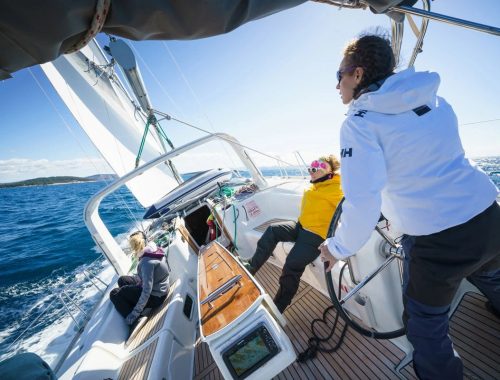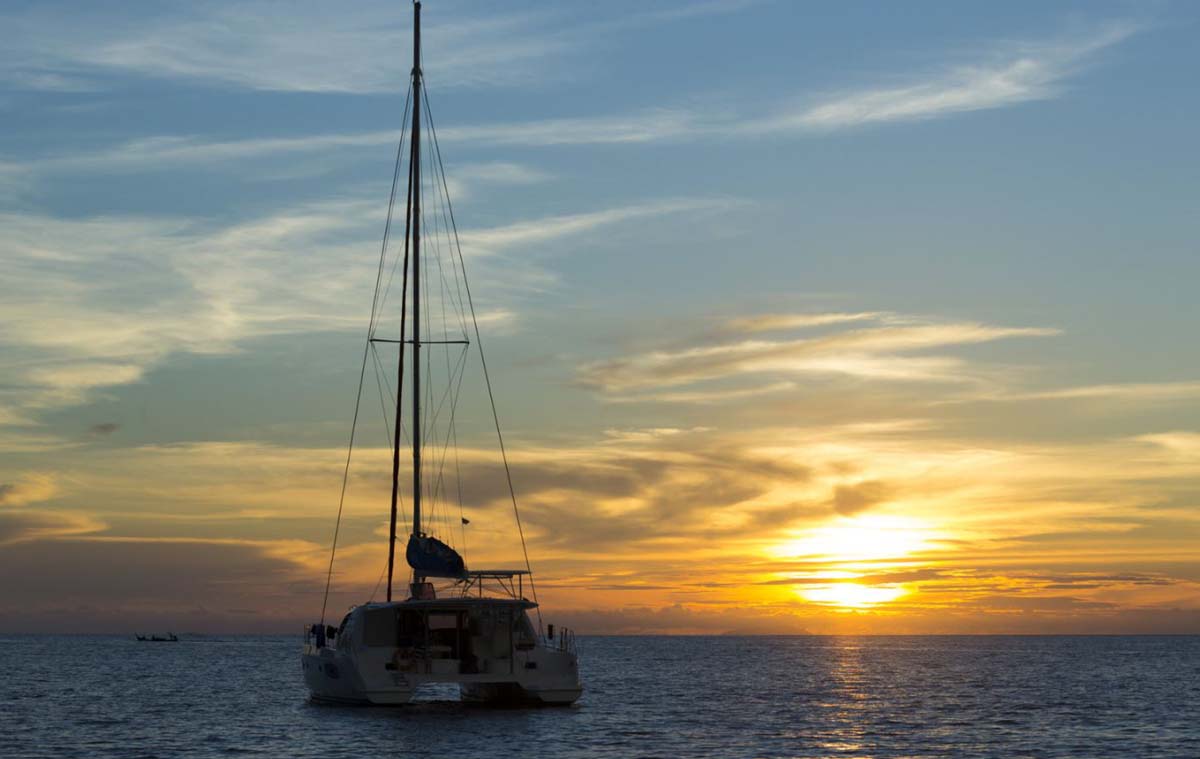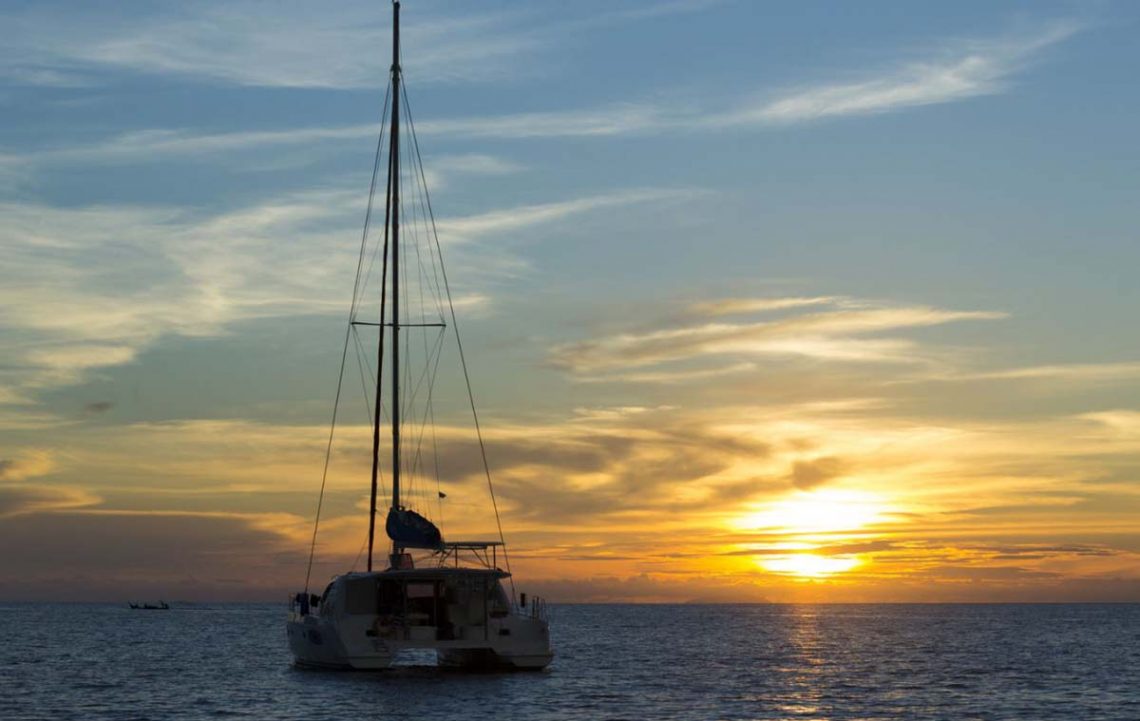
Where to spend the night on a boat: How to choose the right spot
Sleeping aboard a boat at night can be a fun and relaxing adventure that every sailor should experience. As the light fades, everything on and around the water changes, creating a unique atmosphere that can only be felt while afloat. For many sailors, the truly magical moment is falling asleep under the stars, gently rocked by the movement of the sea.
But spending the night on a boat is also an essential part of a long cruise, allowing you to sail freely along the coast or explore islands while spending days and days at sea. Newbie sailors may feel uncertain about the idea of sleeping onboard, and those with little sailing experience might wonder where the calmest and safest place to spend the night might be. That’s why it’s important to know what to expect and be well prepared, because at sea—a ever changing environment—anything can happen.
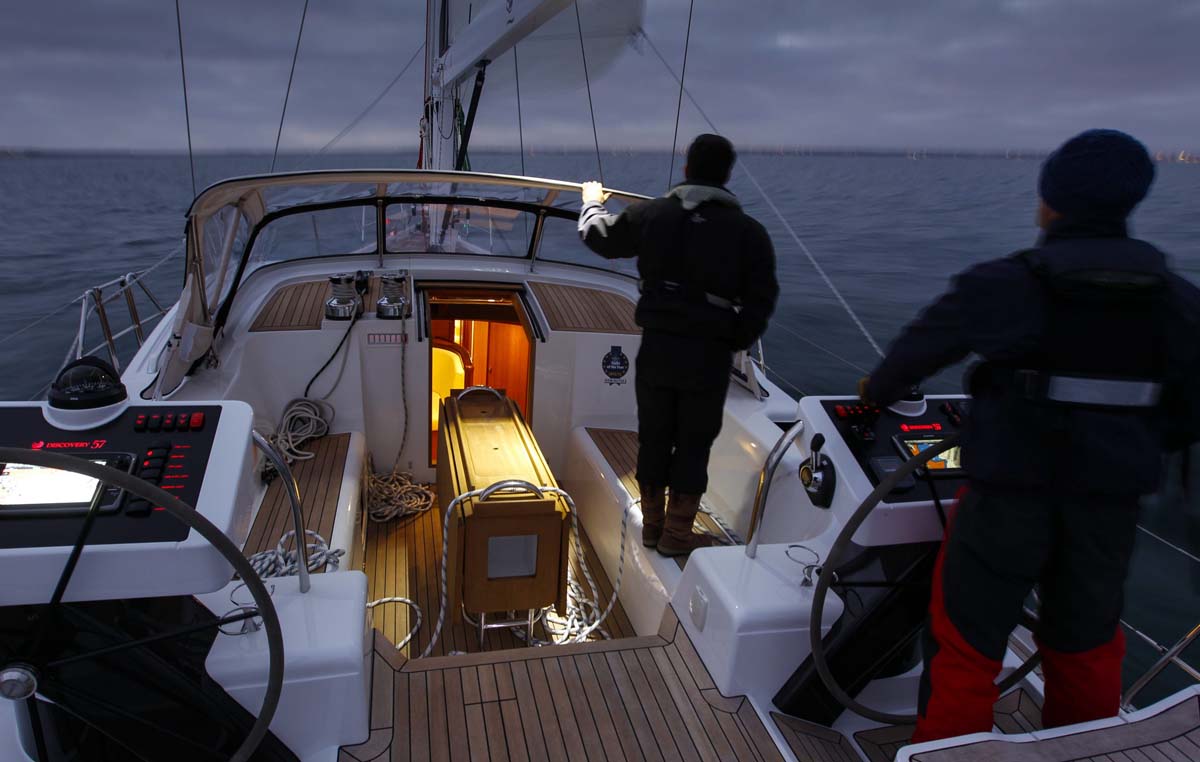
Studying charts and pilot guides to find the best spot
Where can you spend the night on a boat during a cruise? The answer is: almost anywhere. But some places are better for sleeping than others. The most important factor to consider when spending the night on a boat is where to moor or anchor the vessel so that you and your crew can enjoy a good night’s sleep. The best spots to anchor overnight are quiet, sheltered areas with calm waters: bays, coves, or natural inlets along the coast. This also means places free from nighttime traffic and protected from strong winds and currents.
In many regions, there are plenty of suitable spots to sleep aboard while at anchor—that is, secured only with the anchor. To locate them, you simply need to read maps, study nautical charts, and consult nautical guides to find the best areas in your sailing zone. Make sure to arrive while there is still plenty of daylight, so you can scout the area and spot any potential hazards, such as rocks or shallow reefs, before they become a problem.
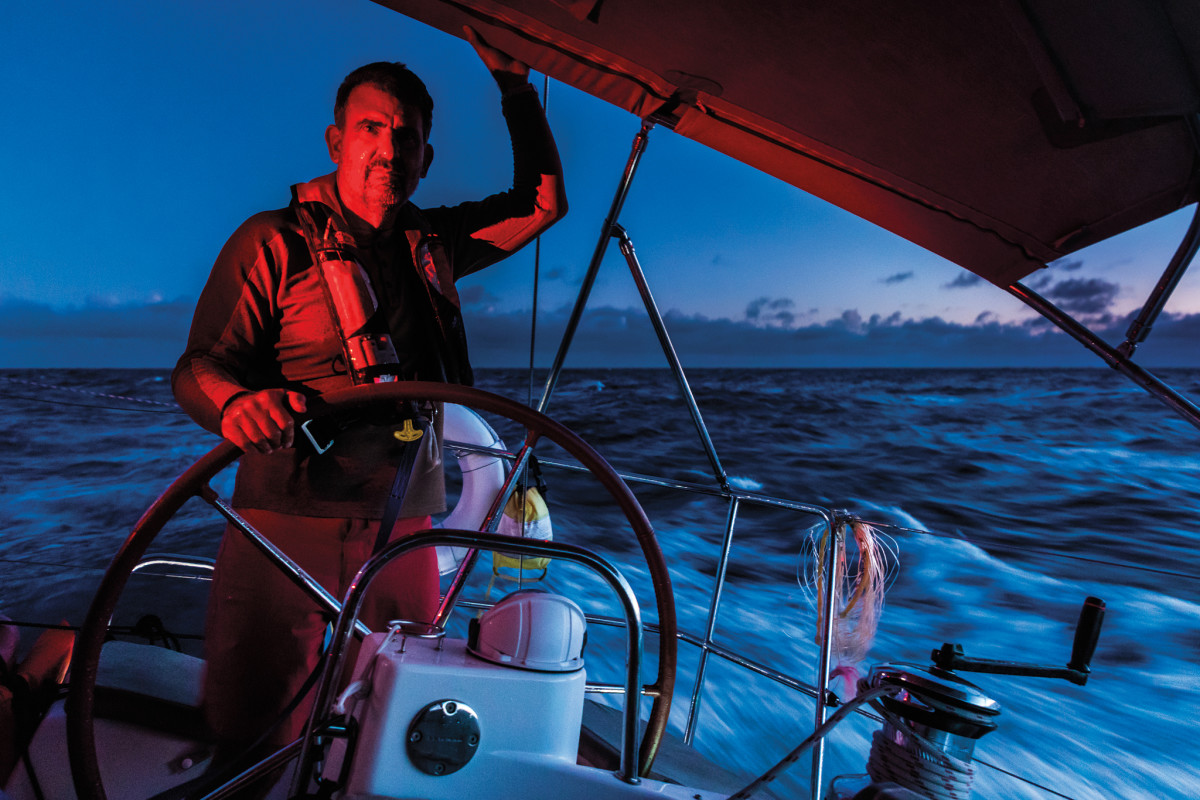
Checking the safety of your anchorage
When sleeping on a boat, the most important thing is to make sure the vessel stays in place throughout the night. If you’re not moored in a port or marina, you’ll need a reliable anchor to keep the boat securely in place. By using nautical charts and other available resources, you can also determine the type of seabed (mud, rock, sand, etc.) where the anchor will be dropped, and choose the anchor best suited for those conditions.
The anchor must not only be attached to a chain long enough to reach the bottom, but also set with the proper “scope” relative to the depth and the weather conditions. Finally, it must have sufficient weight and a suitable design to dig firmly into the seabed.
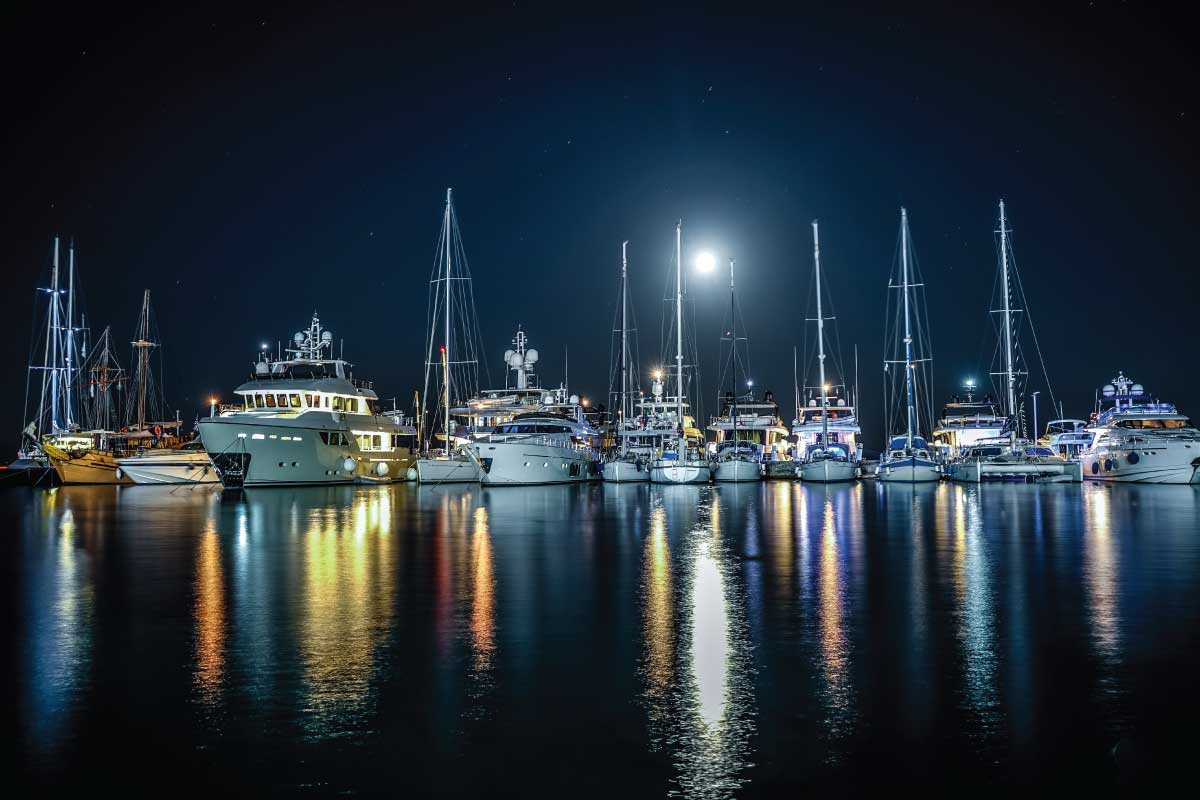
Sleeping in a marina is easier, but you won’t be alone
A marina is one of the most popular places to spend the night on a sailboat, thanks to the services and facilities available to sailors. However, marinas can have different rules regarding overnight stays. In some marinas, for example, sleeping on the boat is prohibited, while in others there may be a limit on the number of days a vessel can remain at a berth. Most marinas accommodate transient sailors, but it’s important to check availability and local regulations in advance to avoid unpleasant surprises.
When staying overnight in a marina, it’s best to choose a quiet area with minimal distractions that could disturb the boat. Many marinas recommend mooring in zones with low traffic, so you don’t have to worry about wakes or passing boats during the night. The noise from floating docks is often amplified at night, so it’s a good idea to bring earplugs just in case. Another important safety note is that some marinas may restrict swimming or fishing in the area due to electrical installations on the piers.
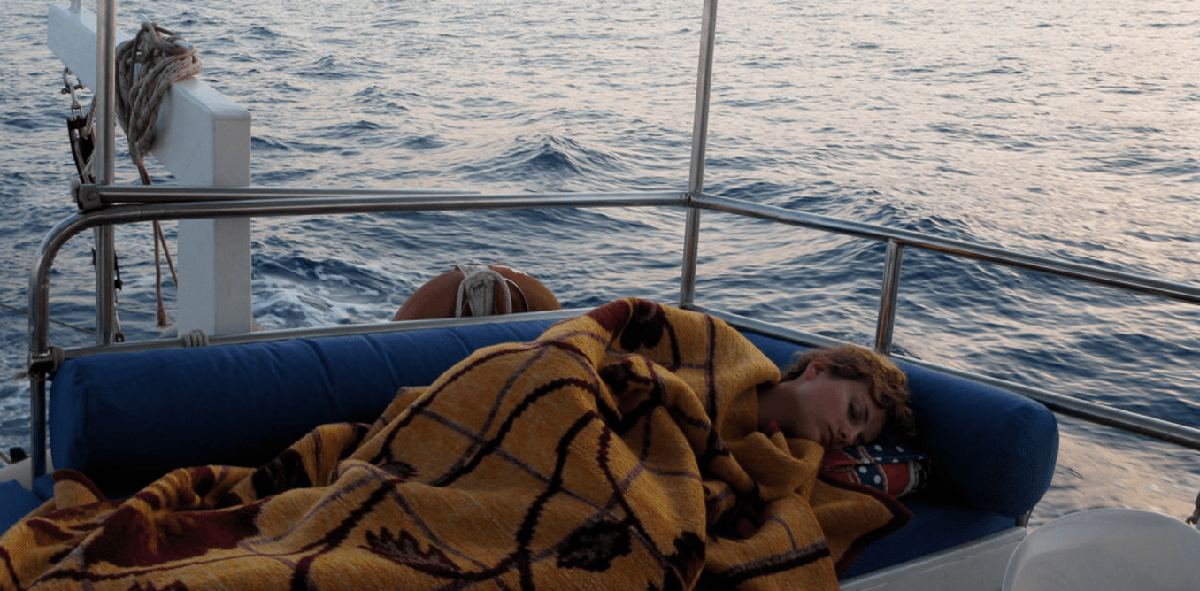
How to sleep while offshore at night?
Sleeping on a sailboat in the open ocean is a very different experience. The main difference is that when you’re tired or the sun sets, you can’t just drop anchor and go to sleep like you can in shallow waters. The water is too deep, and since the boat is constantly moving, you and your crew need to take turns to steer the vessel and keep an eye out for other boats or bad weather.
The traditional way to manage this is by standing watch, usually for 3 to 4 hours at a time, with two or more people awake while the others sleep. Staying awake from midnight to 3 a.m. can be exhausting, and the first night can make it hard to get rest because of the boat’s motion in the waves or when under engine power. After a day or two, however, everyone learns to catch up on sleep when off duty during the day.
Another difference when sleeping at sea is that the boat’s movement in strong winds can be much more intense than in calmer waters, making it harder to sleep comfortably. To avoid being thrown out of your berth in rough seas, it’s a good idea to set up a safety net or anti-roll strap before heading out, preventing you from sliding across the cabin floor during rolling.
For longer ocean trips, it’s also wise to know in advance if you’re prone to seasickness. If so, consult your doctor for a scopolamine patch or another suitable remedy to prevent discomfort.

Small tips to ensure a good night’s sleep on board
To sleep well on a boat, it’s important to feel comfortable and safe. Having the right equipment and following a few simple tips can make the experience much more enjoyable. Here are five tips to make sleeping on a boat easier and more restful:
- Bring plenty of lights and batteries so you can illuminate different areas of the sailboat at night, including a bright LED headlamp for hands-free use.
- Nights at sea can be chilly, so bring warm pajamas, a sheet, blanket, or sleeping bag to stay cozy.
- As a group, agree on a calm evening routine so that anyone who wants to sleep can do so without interruptions.
- If you have trouble sleeping with light or noise around, bring a sleep mask and soft earplugs.
- Night lights can attract bugs, especially in warmer climates, so use mosquito nets and insect repellent to enjoy the evening and fall asleep peacefully.
You May Also Like

Tropea, one of the most beautiful seaside villages in Italy
28/11/2023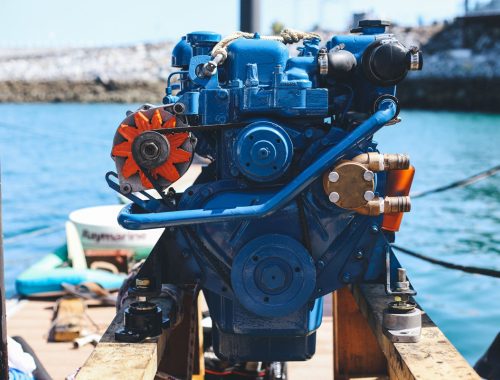
How to handle the most common boat engine failures
05/12/2025